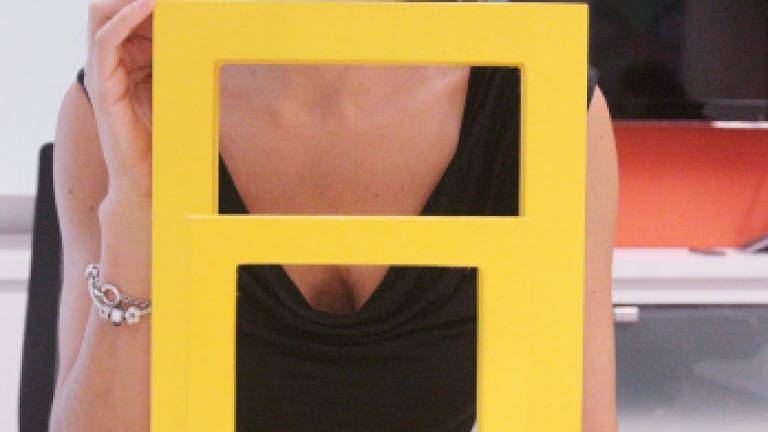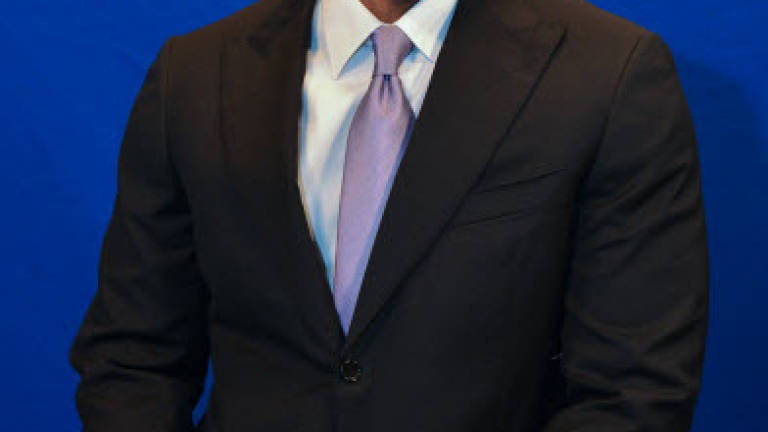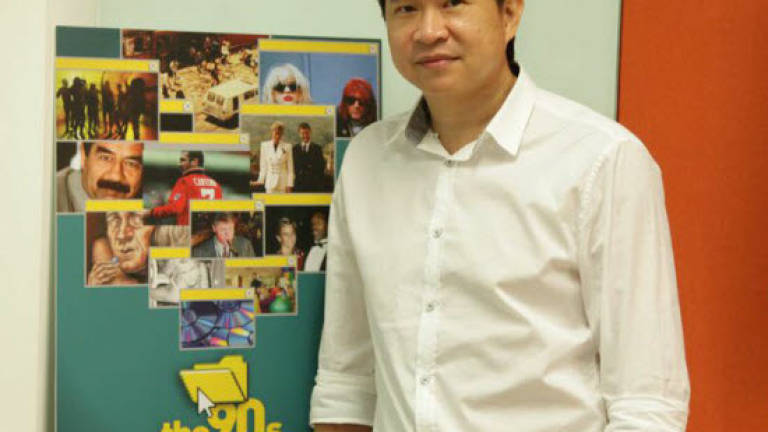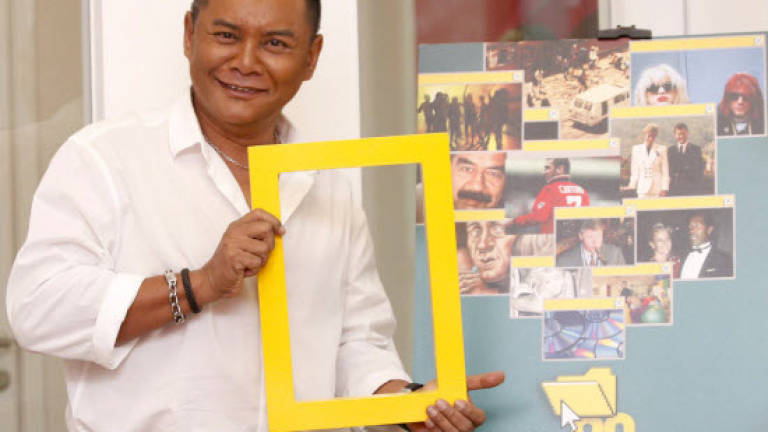Salute to the 90s




LAST year, National Geographic Channel put the spotlight on the 80s and highlighted the decade's greatest as well as worst moments to viewers in their series, The 80s: The Decade That Made Us.
This year, National Geographic Channel pays homage to yet another exciting decade with the series, The 90s: The Decade That Connected Us. It will premiere on Aug 10 at 10pm.
To celebrate the 90s, some Malaysian personalities who had made waves during the decade share their experiences.
► ZAINAL ABIDIN
Among the singers who ruled the music charts then was Zainal Abidin, the former frontman of a rock band Headwind. Zainal later went solo and became a star in his own right singing his pop-ethnic songs about the environment.
"The 90s was an exciting decade for me," said Zainal. "It was history in the making for my career and for my age. The music scene in the 90s was one of the best times of my life."
Zainal's first solo album - the self-titled album Zainal Abidin (1992) - had tracks such as Hijau, Inayah and Baba and these became his signature songs and sustained his career over the decade.
His follow-up album Gamal and Terang also consolidated his position as an artiste. In fact, it was based on these albums that singer-songwriter Phil Collins invited Zainal to record the Malay version of the songs featured in the movie Tarzan.
Zainal also describes the 90s as an era when music and artistic works were very competitive.
"No one wanted to be someone else. Everyone wanted to be themselves. Real talent could been seen." He cited Sheila Majid who had emerged in that era with her unique singing style and stood out from the crowd. After the 90s, Zainal said artistic talent had become more formula driven.
"When Siti Nurhaliza became a hit, all the new artistes had to 'sound' like her. That was not the case in the 90s," he added.
He points out that the 90s was special to him because that was when he got married, had his first child and became a solo artiste.
"People thought I had taken a wrong step when I went solo. Up to that point, I was known for love songs and ballads. Then I switched to singing songs about the environment with a Kelantanese dialect.
"People said that it would not work. My philosophy back then was not to give people what they wanted to hear but rather offer my best. So I came out with something very different."
Zainal said that at first, his fans thought he was being political or being religious. It took time to convince them it was all about the environment and conservation. However, once they understood, Hijau
became an anthem to save the environment.
"It came out at the right time and at the right place," Zainal admitted. "People were getting tired of hearing the same thing over and over on the radio. Suddenly, there was a song that made them want to learn more. If I came out with it now or before the 90s, it would not have worked."
► CHEAH SOON KIT
Like music, sporting Malaysians would support and cheer for their favourite athlete or team regardless. In 1992, the Malaysian badminton team won the Thomas Cup after a draught of 22 years.
Cheah Soon Kit who had partnered with Soo Beng Kiang scored the winning point during their match against a formidable Indonesia doubles' team to win the Thomas Cup.
Malaysia has yet to lift the Cup since, but Cheah is confident despite no longer being active in the sport for years.
Cheah who is now involved in marketing, reflected that back then, the Badminton Association of Malaysia (BAM) was a small outfit and did not have a sizeable budget.
"It was a project started by Tan Sri Elyas Omar and Datuk Punch Gunalan. I was recruited along with 12 other youngsters. The main target of the project was to win the Thomas Cup. I was very aware of this goal from the beginning," said Cheah.
"At that time, the prize money wasn't much. Whatever we won, we had to share with the association. If you play doubles, you would have to divide that half with your partner."
Despite the lack of monetary incentive, they gave it their all and played with determination.
"I think it all boils down to the individual and what you want to achieve. Since I was young, I just wanted to get into the All-England championship. Back then, that was the ultimate title in badminton."
Once admitted into the BAM project for the Thomas Cup, he made winning it his personal goal.
Cheah is a strong believer that sports bodies should have former athletes running them. He points out that the late Punch Gunalan himself was a national shuttler.
"He knew what was needed to win based on what he had gone through. The mental psychology, the discipline, the desire, everything. As a new player, you will learn from your mistakes but because of his experience, he would share them with you."
His team faced China twice in the Thomas Cup earlier and had lost.
"In 1992, the Thomas cup took place in Malaysia so there was added pressure. Everybody knew we had a good chance to win. All of us were mentally prepared for it. And with home crowd support, we had the advantage."
► JAKE ABDULLAH
The 90s was a great year for radio. After the launch of THR, Astro's Amp Radios followed suit by launching several channels.
Jake Abdullah was part of AMP Radio in 1996 as a music director and he hosted the drive show for Hitz.
"We launched at Hard Rock Cafe in 1997. If you ask me on hindsight whether Astro radio would have become so huge, I would have said no," he said.
"There were already radio gods like Richard LaFaber and FlyGuy who were making big changes in the radio scene. Before that you needed "the voice of god" but FlyGuy has this squeaky voice that sort of broke the mould.
"When we first came out, people did not understand the formatted music concept. It was not very well accepted and we were afraid to pick up the phone. After a while they understood that their favourite song would be played every four hours."
Jake who is now the CEO of Astro Radio, also believed the success of AMP radio was also due to timing.
"Somehow everything clicked together. It was also when the internet became popular. For example, Michael Learns to Rock was only big in Malaysia and Indonesia. The recording industry dictated what would be played on radio."
► LINA TEOH
During the 90s, the US television was ruled by sitcoms such as Seinfeld and Friends, making the cast of both shows international stars.
In Malaysia, an English sitcom called Kopitiam made stars of unknown talents such as Douglas Lim, Joanna Bessey, Rashid Salleh and Lina Teoh.
Teoh was also Miss Malaysia who represented the country at the Miss World Pageant in 1998 held in Mahe Island in Seychelles where she was the second runner-up.
When she returned from Seychelles, Lina was on the front cover of all newspapers and featured on radio and television.
"From being a nobody, every person in the country now knew me. That was a massive shock to the system. Obviously, it was an honour to be in that position. Initially, it was very overwhelming and surreal."
Kopitiam was also something special as it was shown on terrestrial television and it was an English-language comedy that featured a multi-ethnic cast.
These days Teoh is concentrating on being a mother and is active behind the camera as a producer for documentaries.